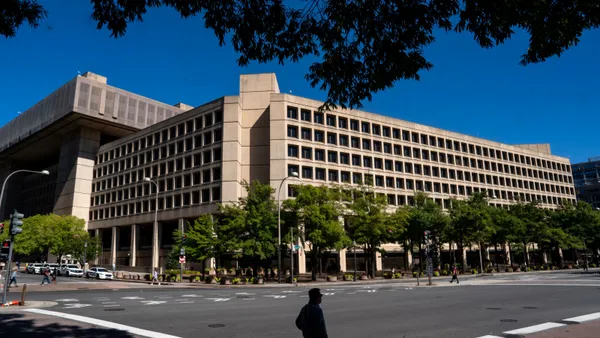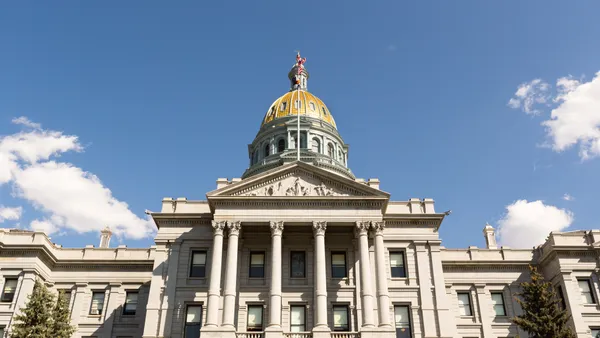Dive Brief:
- The Securities and Exchange Commission should consider proposing a new version of its climate risk disclosure rule rather than adopt as final an overhauled version of its 490-page proposal released in March 2022, SEC Commissioner Mark Uyeda said Tuesday.
- “Before the commission adopts any final rule that significantly deviates from the proposal, it should seriously consider re-proposing the rule with revised rule text and an updated economic analysis,” Uyeda said in a speech, warning of high potential costs to companies from SEC disclosure rules.
- “The commission should do everything possible to not promulgate a rule that is costly and ineffective, as doing so might be indicative of a flawed process that raises the question of whether the rule is arbitrary and capricious under the Administrative Procedures Act,” Uyeda said. A Republican, Uyeda joined the five-member commission in June 2022.
Dive Insight:
The proposed climate risk disclosure rule has prompted more than 16,000 public comment letters and drawn fire from Republican lawmakers and industry groups such as the U.S. Chamber of Commerce.
The SEC has proposed that companies describe on Form 10-K their levels of greenhouse gas emissions and strategy toward reducing climate risk. Critics have said that by adopting the proposed rule, the agency would overstep its authority and impose an onerous burden on companies.
SEC Chair Gary Gensler on Tuesday did not respond to Uyeda’s comments while reiterating that investors have increasingly called for detailed information from companies on carbon emissions amid a hodge-podge of disclosure frameworks.
“Therein lies a role for the SEC — to try to bring some consistency and comparability” in company reporting, Gensler told the Securities Industry and Financial Markets Association.
“If we don’t do something, it’s a pretty fragmented space,” Gensler said, noting climate risk disclosure laws enacted by California and by the European Union. The EU mandate “has extraterritoriality that will probably pull in something like 3,000 or 3,200 U.S. companies into their regime,” he said.
Before publishing a final version of any disclosure rule, the SEC should determine the full range of costs to a company — including fees for attorneys and consultants — as well the commitment of time that could otherwise go toward improving profit, Uyeda said.
Broader disclosure may only benefit a minority of investors, Uyeda said.
“A free rider problem exists when only a few investors desire such information, but the cost of disclosing that information is borne by all shareholders,” he said. “The investors who did not seek the information are effectively subsidizing the investors who requested that information.”
The agency should also clarify whether investors seek the information in order to put a value on the company’s stock, he said.
“An investor may want the information to use it in private negotiations with the company,” Uyeda said, or “because it seeks to use the disclosure as a means to drive social change.”
A re-proposal of the climate risk disclosure rule “would provide the public with an opportunity to focus on aspects of the proposal that they did not initially consider,” he said. “Such a re-proposal may ultimately help the commission craft a better rule for all market participants.”















